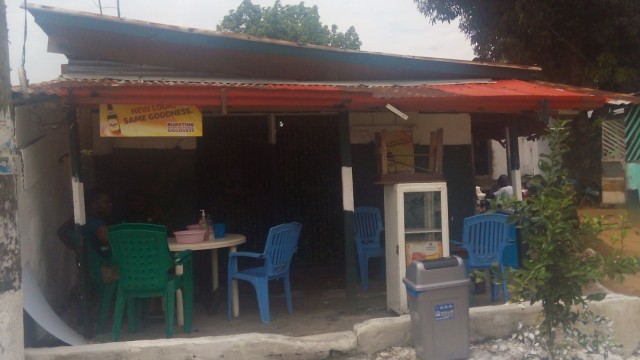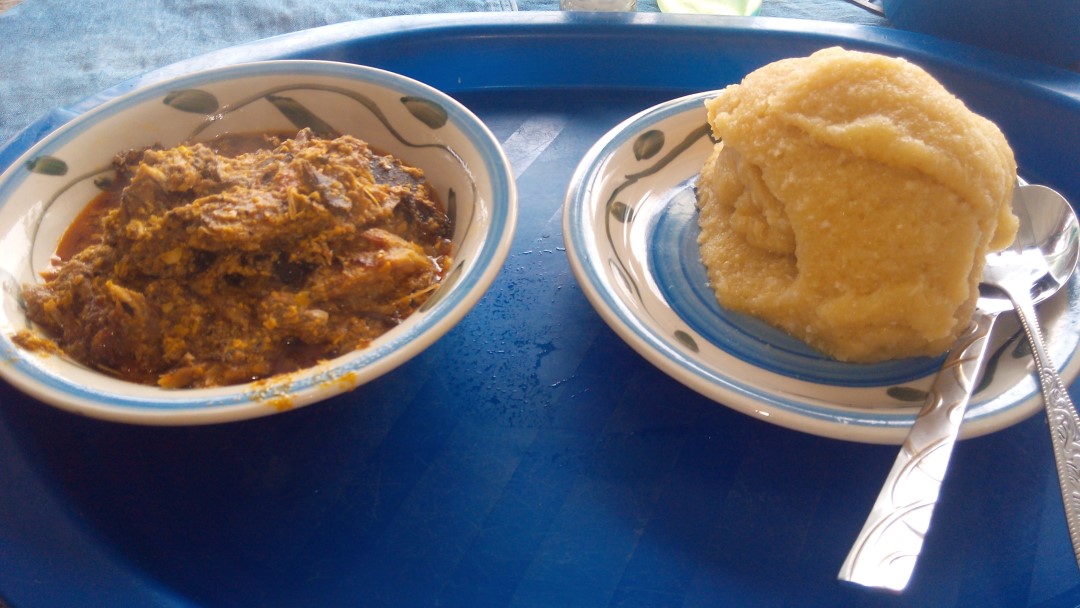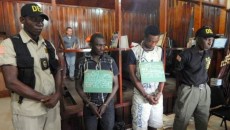Despite the distance from Monrovia, the food of southern Nigeria has made a not insignificant impression on the local culinary scene. As a foreigner, I am not particularly attuned to the presence of Nigerian eating establishments in greater Monrovia, but I have had the pleasure (to varying degrees) of sampling several.
On the same block on Benson Street in central Monrovia, shortly before reaching Randall Street, at least two Nigerian establishments can be found almost adjacent to each other.
I have dined (less pleasurably) at a Nigerian establishment shortly before the Bong Mines Bridge community, and I consumed my first goat head — obscured by a heavy coating of toborgee oil and an unknown green leaf — at a Nigerian restaurant on Somalia Drive. I have often pondered why Nigerian cuisine is so much more prominent in Liberia than that of Ghana.
Having recently moved to the Old Road community, I have made Green Pasture my dinner destination the last two Saturdays. GP is located shortly before Kailondo Hotel (on the same side of the road), before Old Road bends toward Joe Bar Market and the American International School of Monrovia.
It is very unassuming — and certainly a far cry from the atmosphere and price range of the venue that constituted my premier restaurant review for The Bush Chicken.

Old Road’s Green Pasture restaurant is very unassuming. Photo: Brooks Marmon
There is no printed or written menu, although there is entertainment in the form of a small TV screen that on my visits has alternated between football and testimonials for an evangelical church.
GP can seat about a maximum of 16 people – with two tables inside and two on the porch, each boasting about four chairs apiece. To align with the color of the pasture, or perhaps the Nigerian flag hanging on the wall, most of the plastic chairs are green.
Each table boasts a recycled bottle of soapy water, heavily diluted with H20, but necessary for the oily stews eaten by hand (I have not seen any indication of spoons on the premise though I assume rice is served).
Green Pasture does not have a printed menu, and I am not sure what the extent of their selection on offer is, as both times I have gone, egusi with eba has been my choice. The food (both the starch and stew), served on a large platter, has always come out piping hot and is immensely filling.
The egusi has a noticeable but manageable amount of pepper and is loaded with meat. On both of my visits, this has consisted of a generous amount of dried fish — some of which is tougher and dryer than I’d prefer — and fewer, though sizeable, chunks of beef from a cow that was not able to develop much body fat during the time it graced this earth.
Plates come in L$300 or US$5. The L$300 option has proven itself a formidable obstacle to consume in one sitting, so I cannot begin to imagine the magnitude of the $5 plate.
Living without a kitchen, the dearth of food options available in Monrovia on Sundays has been quite a challenge. My newfound Saturday evening staple, a particularly solid option when accompanied by a cold stout, goes a long way to ensuring that when I wake up the next day, I am not in dire need of culinary nourishment.
Featured photo by Brooks Marmon

